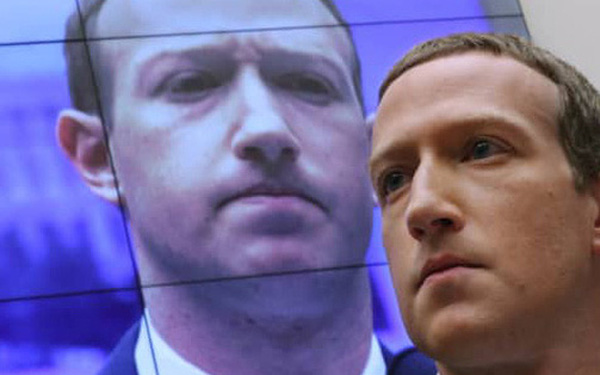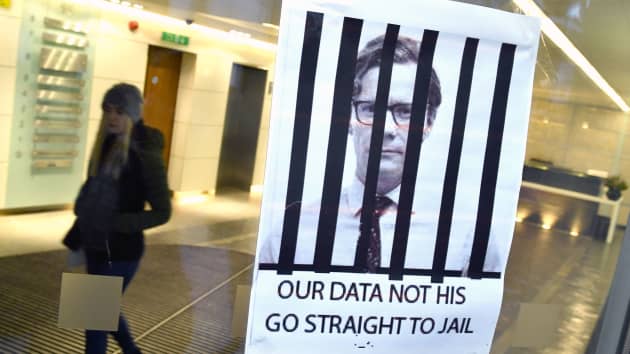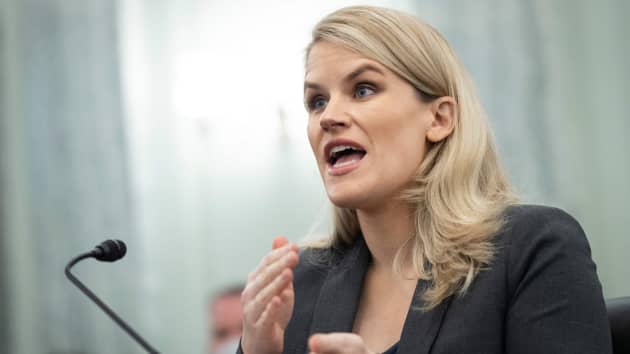Facebook was “hit” by the council, Mark Zuckerberg was engulfed in a storm of criticism
- Tram Ho
scandalous past
Politicians from both parties are outraged after a series of leaked internal Facebook documents showed the social network deliberately ignored the negative effects of its app. Meanwhile, users were furious when it suddenly went numb for 6 hours on the first day of the week, the longest downtime in 13 years.

Investors, who are often the last to jump ship, are also talking by looking at their wallets. Facebook’s stock price has fallen 12% over the past three weeks, a drop nearly three times the Nasdaq’s 4.5% drop over the same period.
Facebook is facing a wave of outrage similar to what happened in March 2018 when it was reported that Cambridge Analytica had unauthorized access to the data of 87 million Facebook accounts and used the information. that information to target ads for Republican presidential candidate Donald Trump’s 2016 White House campaign.

Users express their opposition in the Cambridge Analytica scandal.
That scandal created a huge stain for Facebook and caused the social network to endure scrutiny. Many called to stop using Facebook while antitrust investigations led to a record $5 billion fine from the US Federal Trade Commission.
However, Facebook’s business is still running smoothly, and it hasn’t changed much. Before the 2020 race for the White House, misinformation was still widespread. During the Covid-19 pandemic, anti-vaccination and mask-wearing protesters raged. Facebook’s algorithm helps completely baseless conspiracy theories spread widely.
The scandal originated from the “whistleblower”
The latest crisis began with a report by The Wall Street Journal showing that Facebook understood the “addictive” nature of its products but used that understanding to make more money instead of preventing it. that. In particular, Facebook also knows that Instagram can be harmful to the health of teenagers.
“Facebook is like Big Tobacco (the leading companies in the tobacco industry), promoting a product that they know is bad for young people’s health as long as they can make a lot of money,” said Mr. Congressman Ed Markey, a Democrat, criticized the largest social network on the planet during a hearing last week of the US Senate Commerce Subcommittee on consumer health protection.
Facebook is represented by Antigone Davis, the company’s global safety officer. Ms. Davis was asked to explain information contained in an internal document provided by a “whistleblower”.

Frances Haugen, a former product director of Facebook, denounced the largest social network on the planet before the US Senate.
Not long after, the “whistleblower” revealed his identity. That’s Frances Haugen, a former product manager at Facebook. Before leaving the world’s largest social network in May, Haugen copied at least 209 slides of the results of internal research conducted by the social network itself.
Public outcry forced Facebook to halt its plans to develop the Instagram Kids app, a version of the Instagram app aimed at children under 12. However, Facebook has not given up on its intention to develop this product.
Facebook hearings are becoming more familiar on Capitol Hill. However, this event looks different. Before lawmakers, whistle-blower Haugen harshly criticized Facebook, saying the social network had always prioritized its own profits over the health and safety of its users. Even Facebook often targets posts with high engagement even though they know they are harmful.
The senators criticized Facebook founder and CEO Mark Zuckerberg for not responding to their questions and doing nothing to satisfy the public after the report was published by the WSJ. At the end of the hearing, Senate Commerce Committee Chairman Richard Blumenthal said it was too early to get a subpoena for Zuckerberg to appear. However, the Democratic senator said the Facebook boss should appear before Congress “voluntarily”.
“He has a responsibility to answer these questions publicly,” Mr Blumenthal said.
What to expect from Facebook’s change?
However, Zuckerberg is unlikely to do so. In a post on his own platform, the Facebook CEO denied Haugen and the WSJ’s allegations.
“The heart of these accusations is that we prioritize profit over safety and happiness. That’s not true,” Zuckerberg argued, adding that it’s absurd to say that Facebook intentionally pushes users to continue. approach content that will make them angry.
“We make money from ads, and advertisers have always told us that they don’t want their ad content to appear next to content that is harmful or could create outrage,” Zuckerberg said.

However, when this scandal was not resolved, another disaster struck. The social network experienced its worst inaccessibility issue since 2008. Apparently, internally, a variety of company services, from Facebook, Instagram to WhatsApp, were unable to function during the day. 6 o’clock.
Even this problem makes it impossible for Facebook to resolve the issue remotely. The company’s employees and partners also cannot access the system. By one estimate, the incident could cost Facebook $110 million to $120 million in ad revenue. This represents just 0.4% of the revenue Facebook generated in the fourth quarter of last year.
However, the stock market does not think so. Right on the first day of the week, Facebook shares sold off with a drop of nearly 5%. Even with a 2% gain, Facebook stock is still down more than 12% from the session on September 13, just before the WSJ started publishing its series.
Facebook can still recover and continue to grow as before. However, when a crisis occurs, investors have more reason to question the sustainability of this business model.
“Time and time again, we face negative news. However, this latest issue makes us feel different. The culture at Facebook needs to change and if they can’t fix it on their own. If there is a recovery, there may be mandatory measures against Facebook. That’s bad news,” CNBC’s Jim Cramer told members of his investment club.
Source : Genk
